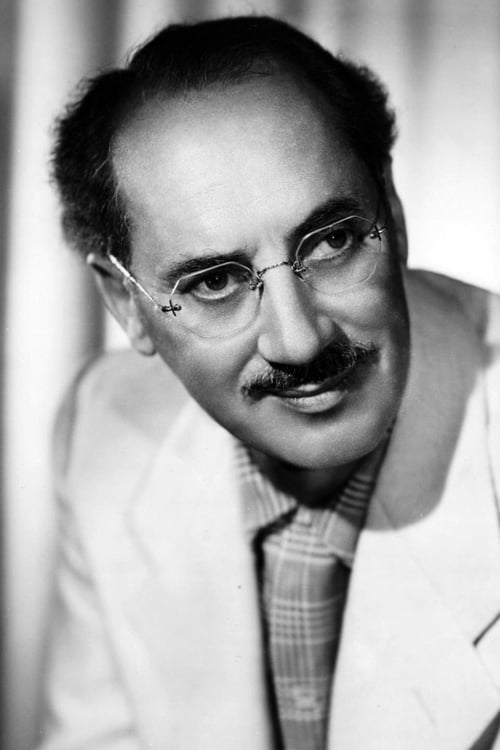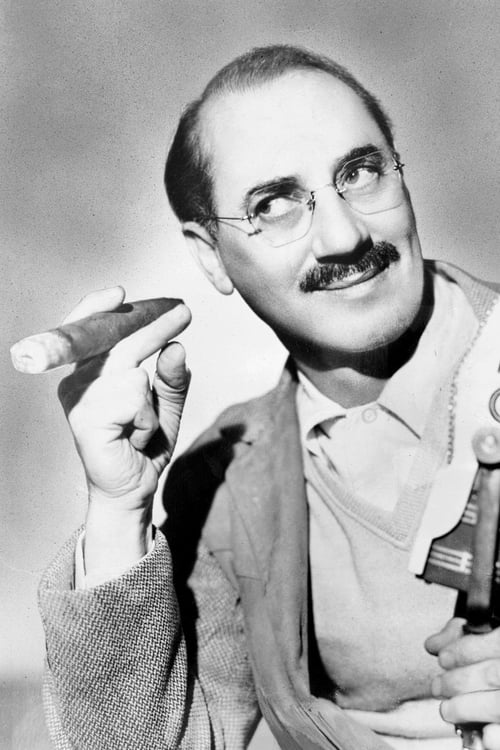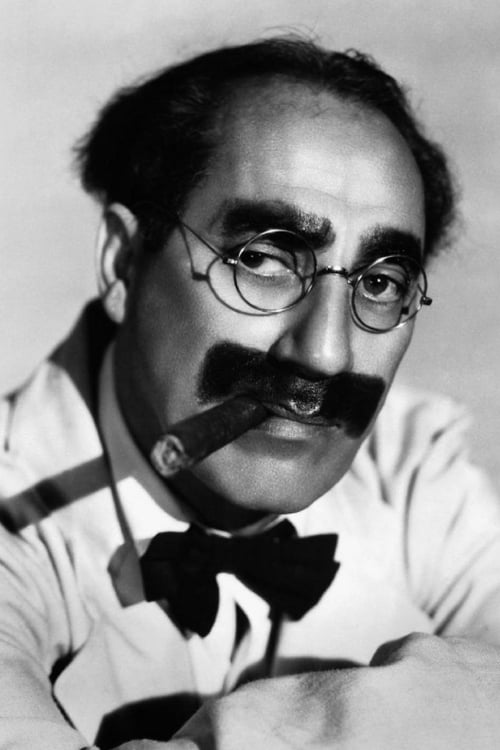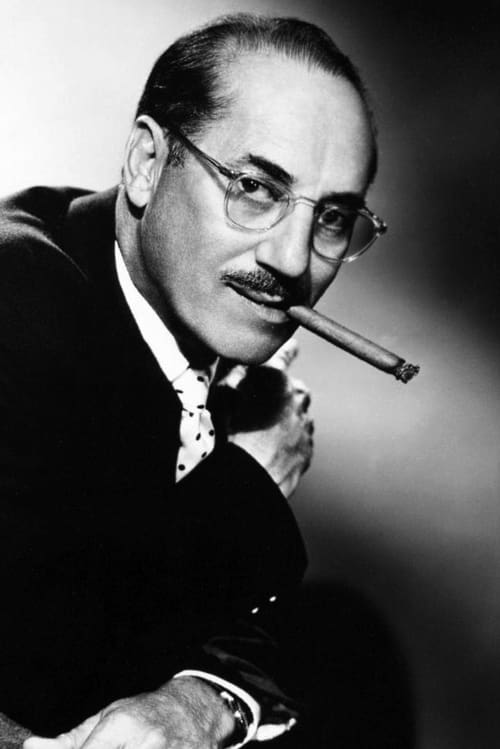
Self (archive footage)
Discover the enduring friendship between television personality Dick Cavett and his mentor iconic comedian Groucho Marx. Their relationship is chronicled through interviews with Cavett, archival footage and interviews with George Burns and others.

Self (archive footage)
Alex Trebek hosts a documentary about television game shows featuring interviews with a number of game show hosts and producers.

Self (archive footage)
The story of the gold-plated statuette that became the film industry's most coveted prize, AND THE OSCAR GOES TO... traces the history of the Academy itself, which began in 1927 when Louis B. Mayer, then head of MGM, led other prominent members of the industry in forming this professional honorary organization. Two years later the Academy began bestowing awards, which were nicknamed "Oscar," and quickly came to represent the pinnacle of cinematic achievement.

Self (archive footage)
Documentary - Take an in-depth look at the personal lives and careers of the famous Marx Brothers: Groucho, Harpo, Chico, Zeppo and Gummo. Pioneers on the American comedy scene, the brothers' comedic timing, wit and style are unmatched to this day. Fans will delight in this broad collection of Marx memorabilia, including favorites such as "Animal Crackers," "Monkey Business," "Duck Soup" and "A Night at the Opera," as well as interviews and rare footage. - Chico Marx, Groucho Marx, Harpo Marx

Self (archive footage)
The early days of The Beatles are captured in this fascinating film. Featuring behind the scenes clips, it traces the Fab Four's start as Liverpool lads playing the local clubs to 'making it' in Germany. Early press conferences and interviews reveal their charisma and knack for messing around - yeah, yeah, yeah!

Self (archive footage)
Join all you favorites--Spanky, Buckwheat, Alfalfa, Darla, Butch, Froggy and more--in a jam-packed special covering more than twenty years and 200 episodes of Hal Roach's inimitable brand of childhood magic. This fascinating video offers insight into the Gang's personal lives, as rare footage follows each member's career through the joys and misfortunes that went along with being one of America's most beloved kids. See how the series began in 1922 and changed after the first all-talking release in 1929, why Shirley Temple and Mickey Rooney never made the Gang, a fifteenth anniversary reunion, and clips from their only feature.

Self (archive footage)
A tribute to the lives and careers of the Marx Brothers utilizing rare archival footage and personal interviews.

Self (archive footage)
Groucho's life story, with jokes

Self (from Love Happy [1949]) (archive footage)
Her story is well-known - the lonely child who yearned for affection and approval which she finally seemed to find as Hollywood's greatest love goddess. But even though she scaled heights few could even dream of, she was one of the loneliest of stars. And yet, in spite of the breakdowns, the failed marriages, the sordid rumors surrounding her life -- and her death.

(archive footage)
Robert Preston hosts this documentary that shows what people of the 1930s were watching as they were battling the Depression as well as eventually getting ready for another World War.

Himself (archive footage)
Out-takes (mostly from Warner Bros.), promotional shorts, movie premieres, public service pleas, wardrobe tests, documentary material, and archival footage make up this star-studded voyeuristic look at the Golden age of Hollywood during the 30s, 40, and 50.

(archive footage)
A fascinating look at the most beloved comedy team in motion picture history. Exclusive interviews with those closest to the brothers supplement this collection of highlights from their film, theater, and television appearances and offer a compelling look at their lives both on and off-screen.

Self (archive footage)
A collection of bloopers and outtakes from an enormous selection of Hollywood classic productions spanning from the 1930s through the 1980s.
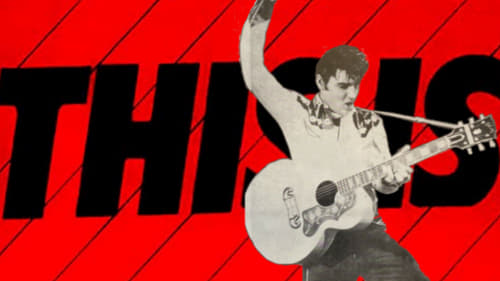
Self (archive footage) (uncredited)
Though several actors portray Elvis Presley at different stages of his life, this documentary is comprised mostly of actual performance footage and interviews with Elvis, his fans and those close to him. This biographical docu-drama features rare footage of Elvis and dramatically recreated scenes from Elvis' life.

(archive footage)
Documentary about Salsa music with interviews with major Latin stars

(archive footage)
É a sequência de Era Uma Vez em Hollywood, de 1974. A produção mostra uma retrospectiva dos principais filmes produzidos pela MGM dentre os períodos de 1930 a 1950. Neste segundo documentário, arquivistas destacaram números musicais pouco conhecidos dos arquivos da MGM, e também tributos a alguns dos times de comédia mais famosos da MGM, como os Irmãos Marx, e Laurel e Hardy, duplas românticas como Spencer Tracy e Katharine Hepburn, e uma montagem de estrelas icônicas como Clark Gable, Mickey Rooney, John Barrymore, Wallace Beery, Joan Crawford, Jean Harlow, James Stewart, Lana Turner e Greta Garbo. Gene Kelly e Fred Astaire apresentam o filme e Kelly dirigiu as cenas introdutórias, como a volta dele à Paris, na qual foi rodada dois dos filmes mais famosos da MGM "Sinfonia de Paris" e "Gigi".

Self
Over fifty of the greatest living comedians are called to a party at Bob Hope's house, where each of them is systematically killed (and their bodies thrown in Hope's pool!). Hope and the rapidly shrinking cast try to discover who is the mysterious killer known only as "Joys."
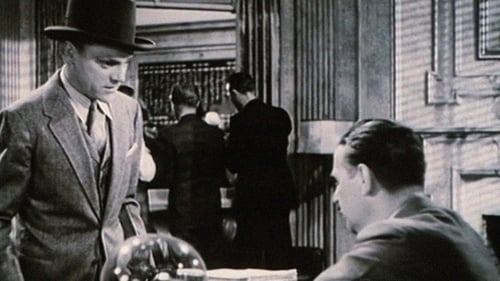
Self (archive footage)
Period music, film clips and newsreel footage combined into a visual exploration of the American entertainment industry during the Great Depression.

Writer
In a TV film about the film Casablanca, Kren is meant to read aloud three letters that Groucho Marx wrote to Warner Bros., because they wanted to take legal action against him over A Night in Casablanca. The recorded material could not be used on television and was meant to be destroyed. Kren found it and showed it uncut with its repetitions.

Self (voice)
The Mad, Mad, Mad Comedians is a 1970 American animated television special produced by Rankin/Bass Productions. After the Christmas special Frosty the Snowman (1969), it was Rankin/Bass' second hand-drawn animated work to be outsourced to Osamu Tezuka's Mushi Production in Tokyo, Japan. The show aired on ABC on April 7, 1970 before the airing of that year's Oscars. It was a tribute to early vaudeville, and featured animated reworkings of various famous comedians' acts.
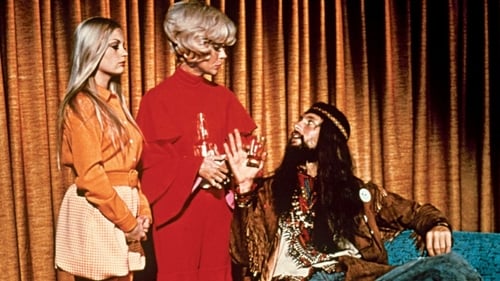
God
Ex-gangster Tony Banks is called out of retirement by mob kingpin God to carry out a hit on fellow mobster "Blue Chips" Packard. When Banks demurs, God kidnaps his daughter Darlene on his luxury yacht.
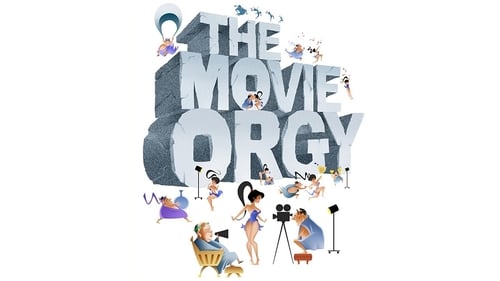
Self (archive footage)
Clips from assorted television programs, B-movies, commercials, music performances, newsreels, bloopers, satirical short films and promotional and government films of the 1950s and 1960s are intercut together to tell a single story of various creatures and societal ills attacking American cities.
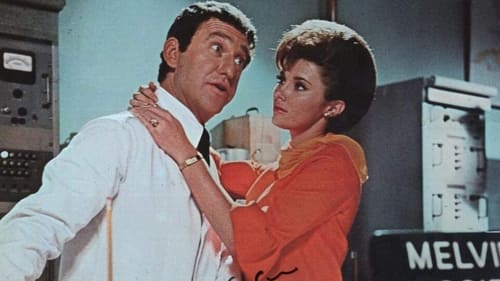
Man Looking Through Window At Melvin Flying
Zelador de usina atômica sofre efeitos de radiação adquirindo a capacidade de voar e com isso, de fazer espionagem.
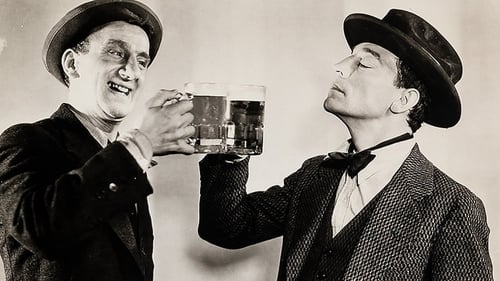
(archive footage)
Film clips highlight the funniest scenes and brightest comic stars in MGM's history.

Self
A collection of behind the scenes and home movies from the golden age of Hollywood.

Ko-Ko
Groucho Marx fulfills his lifelong dream to sing Ko-Ko in The Mikado. Broadcast as part of The Bell Telephone Hour.

Suspect in a Police Lineup
Jewel thieves Chico and Harpo Marx disguised as Groucho plan the perfect crime. Groucho appears as himself at the end in a police line up.

Peter Minuit
The devil and the spirit of mankind argue as to whether or not humanity is ultimately good or evil.

George Schmidlap (uncredited)
To save his career, an ad man wants a sex symbol to endorse a lipstick. But she wants something too: he has to pretend to be her new lover.

Stage conductor
Short promotional film for a Saturday Evening Post sales convention.
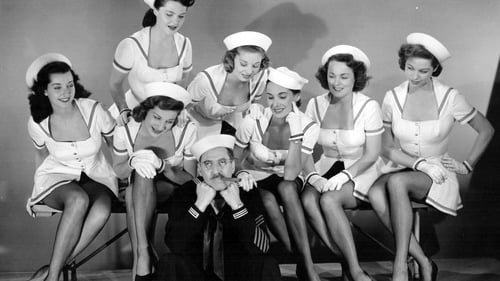
Benjamin Franklin 'Benny' Linn
After two sailors are conned into buying a lame race-horse, they go ashore to sort out the problem, but when they realize that the horse is one of a pair of identical twins, their plan for revenge becomes more complicated.
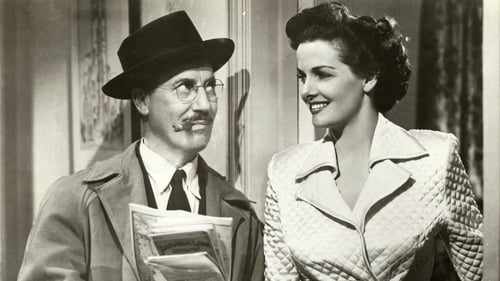
Emile J. Keck
An innocent bank teller, suspected of embezzlement, is aided by an eccentric, wisecracking waiter.
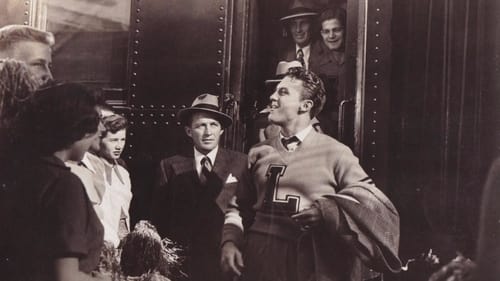
Groucho Marx
Um compositor louco pelo golfe tenta evitar as longas horas solitárias de concentração necessárias para produzir um musical de sucesso. Seu produtor e sua secretária conspiram para colocá-lo de volta nos trilhos.

Sam Grunion
Mike Johnson, um empresário e dançarino, tenta produzir um show musical, ensaiando em um teatro com a dançarina Maggie Phillips, o Grande Faustino e a cantora Bunny Dolan. Para sustentar o grupo, o mudo Harpo rouba comida. Certo dia, ao roubar uma lata de sardinha, ele encontra diamantes contrabandeados por Madame Egelichi e seus comparsas, que farão de tudo para reavê-los. (e Livre - Estimado Livre)
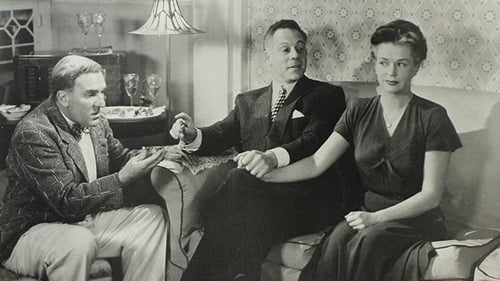
Story
Inspired by the popular '40s radio show of the same title, director Irving Brecher's 1949 comedy stars William Bendix as a hard-working husband-and-father with no shortage of family problems.
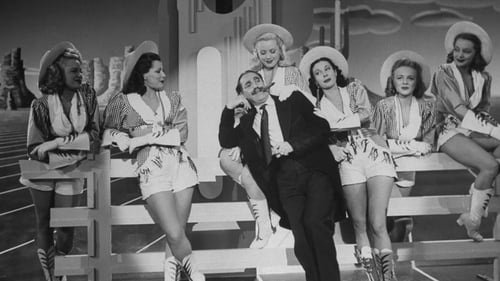
Lionel Q. Deveraux
Groucho Marx interpreta um agente de talentos que vende sua namorada para uma boate - como dois atos separados. A decepção e as mudanças constantes do traje são demasiado para sua garota.
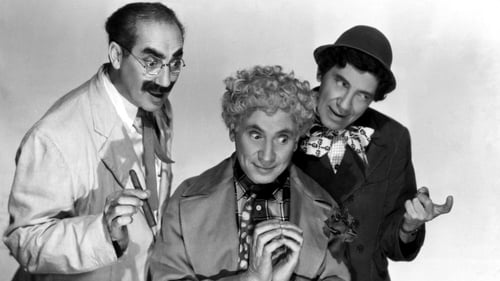
Ronald Kornblow
The Marx Brothers are employed at a hotel in postwar Casablanca, where a ring of Nazis is trying to recover a cache of stolen treasure.
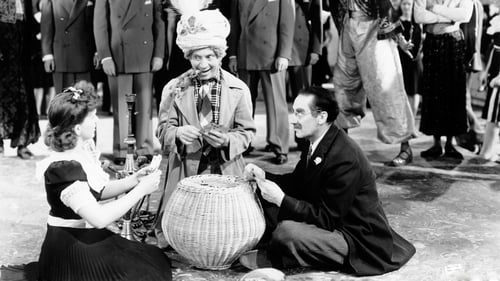
Wolf J. Flywheel
Um detetive é contratado para proteger a vida de um cantor, que herdou recentemente uma loja de departamentos do trapaceiro gerente da loja.
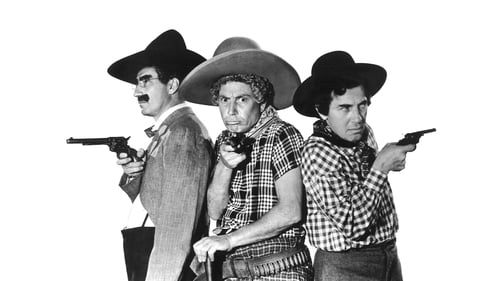
S. Quentin Quale
Os irmãos Marx se aventuram no velho Oeste. Joseph e Rusty ganham uma escritura como pagamento e usam ela para pagar cervejas. Mais tarde descobrem que precisam da escritura e tentam recuperá-la mas os bandidos vão tentar impedi-los a todo custo!

Self
Douglas Shearer, engenheiro de som da MGM, nos leva num passeio pelos bastidores para apresentar a forma como a parte de som de um filme falado é criada. Usa o filme Divino Tormento ou Bitter Sweet (1940) (Com imagens de Jeanette MacDonald e Nelson Eddy) e o filme O Inimigo X ou Comrade X (1940) (Com imagens de Clark Gable e Hedy Lamarr) para ilustrar as técnicas. Partes deste curta estão em Technicolor, incluindo um impressionante teste de tela de Greer Garson para o filme Flores do Pó ou Blossoms in the Dust (1941). O resultado é um "desfile" de trailers dos próximos filmes da MGM que mostram quase toda a constelação de estrelas da MGM.
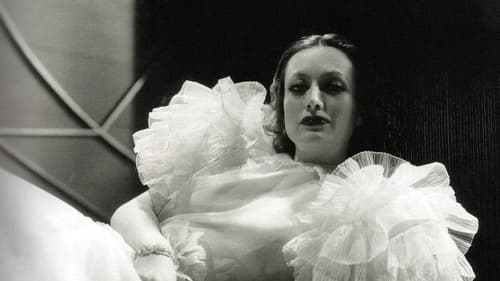
Self
This short promotes the premise that movies often create a demand for the fashions seen in them. It starts with a vignette in rural America. A mother and daughter go to town to buy a new dress. In the dress shop window is a designer dress worn by Joan Crawford in a recent movie. We then go to Hollywood and visit Adrian, MGM's chief of costume design, and see how multiple copies of a single clothing pattern are produced. The film ends with short segments of several MGM features.
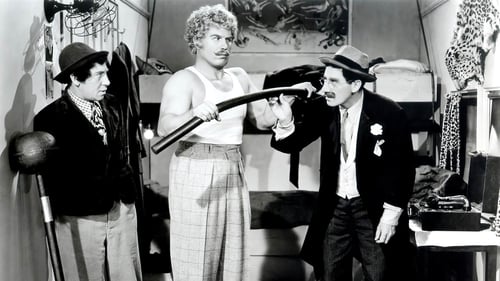
Attorney J. Cheever Loophole
Jeff Wilson, dono de um pequeno circo, deve US$10.000 ao seu sócio, Carter. Antes que Jeff consiga pagar, Carter permite que seus cúmplices roubem o dinheiro, para que ele fique com o circo só para si. Antonio Pirelli e Punchy, funcionários do circo, juntamente com o advogado Loophole, tentarão encontrar o ladrão e recuperar o dinheiro.

Self
An MGM short showing how materials are shipped by boat 'From the Ends of the Earth' to Hollywood. Featuring footage from the MGM films being made at the time. Such as The Women, Thunder Afloat, Siren of the Tropics, Ninotchka, Northwest Passage, and At the Circus.

Gordon Miller
Os Irmãos Marx tentam montar uma peça de teatro antes que o gerente do hotel descubra que eles estão sem dinheiro. Para confundir o gerente eles fingem que o autor da peça contraiu uma doença terrível e não pode ser movido. Originalmente uma peça de teatro, o cenário mostra as suas origens, mas isso é dos Vintage Irmãos Marx.

Groucho Marx
A series of vignettes with a loose plot. Featured are Frank Morgan, Groucho Marx, Frank McHugh, Robert Benchley and The Brian Sisters. Not bad, more interesting for the historical significance than for entertainment.
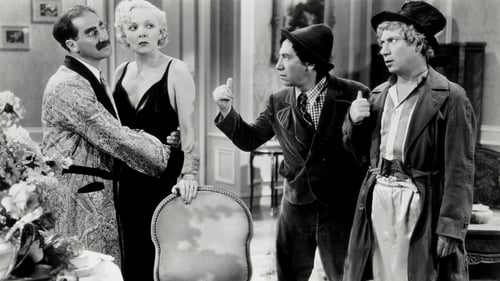
Dr. Hugo Z. Hackenbush
Em seu papel preferido, Groucho é o Doutor Hugo Z. Hackenbush - Dr., PhD, ABC, BBB, Zyb e mais um montão de siglas. Chico, Harpo e Margaret Dumont também participam desta comédia que é um verdadeiro coice no mau-humor. Divirta-se com um sorvete especial, o exame médico de Dumont, Harpo como uma bela garota e muito mais, à moda dos irmãos Marx.
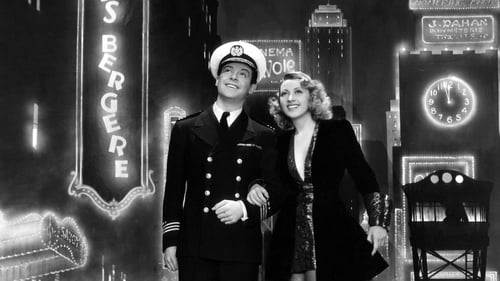
Writer
A destitute, bored monarch falls in love with a chorus girl.

Sunbather
Casino operator Johnny Lamb hires down-on-her-luck socialite Lucille Sutton as his casino hostess, in order to help her and to improve casino income. But Lamb's pals fear he may follow Lucille onto the straight-and-narrow path, which would not be good for business. So they hire Gert Malloy and Dictionary McKinney, a pair of con-artists, to manipulate Johnny back off the path of righteousness.
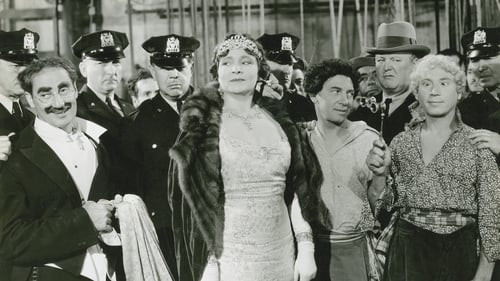
Otis B. Driftwood
Dois amantes que gostam e trabalham com ópera estão distantes porque o homem não é bem aceito como tenor. Os irmãos Marx, então, fazem com que o tenor normal esteja ausente para o outro ter sua grande chance, através de muitas palhaçadas típicas do grupo.

Self (archive footage) (uncredited)
Comedian Lloyd Hamilton escorts a group of beauty contest winners to various Hollywood night spots.
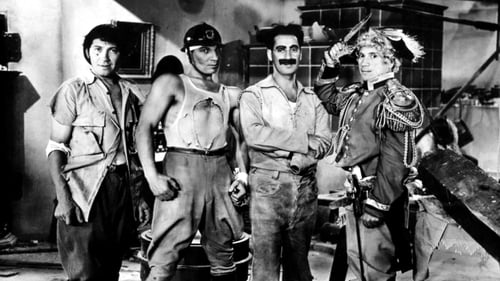
Rufus T. Firefly
Rufus T. Firefly é nomeado presidente/ditador da corrupta Freedonia e declara guerra à sua vizinha, Sylvania, disputando o amor da rica Sra. Teasdale.

Self
Footage of Groucho, his wife and his children.

Director
Footage of Groucho, his wife and his children.

Self
Short film made up of various clips showcasing the Cinecolor process, including a visit to a Marx Brothers film set.
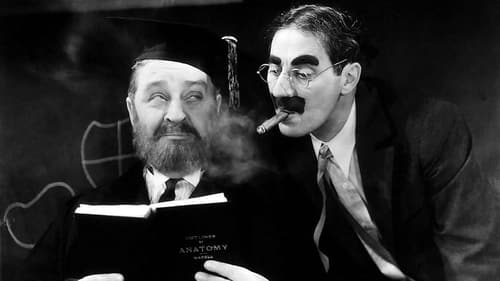
Quincy Adams Wagstaff
O professor Quincy Adams Wagstaff (Groucho Marx) acaba de ser nomeado o Diretor da Faculdade Huxley. Seu filho Frank (Zeppo Marx), que está mais interessado em namorar do que estudar, sugere que ele incentive o time de futebol americano da escola. Tentando ajudar, o filho diz ao pai que os melhores jogadores do país costumam se encontrar num bar próximo à faculdade. Quando o professor chega lá, contrata dois esquisitões (Chico e Harpo Marx) achando que são ótimos esportistas. Essa dupla fará de tudo - menos jogar futebol.

Caesar's Ghost
In the office of Mr. Lee, a talent agent, Zeppo bursts through the door, proclaiming to be a great musical actor. He gives a terrible impression of Maurice Chevallier. Chico arrives, also proclaiming to be a great musical talent, and gives an even worse impression of the same musical act. This is followed by Groucho and finally Harpo, all adding to the growing confusion in the office.
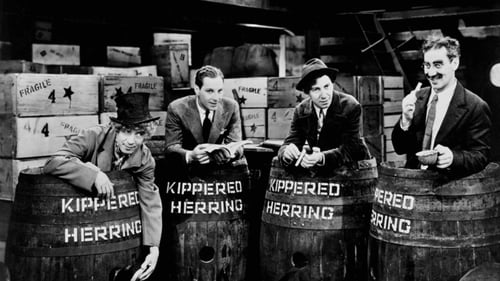
Groucho
Four stowaways get mixed up with gangsters while running riot on an ocean liner.

Caesar's Ghost
The House That Shadows Built (1931) is a short feature, roughly 48 minutes long, from Paramount Pictures made to celebrate the 20th anniversary of the studio's founding in 1912. It was a promotional film for exhibitors and never had a regular theatrical release and includes a brief history of Paramount, interviews with various actors, and clips from upcoming projects (some of which never came to fruition). The title comes from a biography of Paramount founder Adolph Zukor, The House That Shadows Built (1928), by William Henry Irwin.
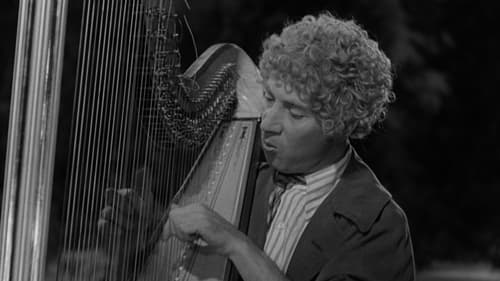
Captain Jeffrey T. Spaulding
Os Irmãos Marx levam anarquia à festa da alta sociedade em honra do explorador Jeffrey T. Spaulding, que volta da África e onde será exibido quadro caríssimo.
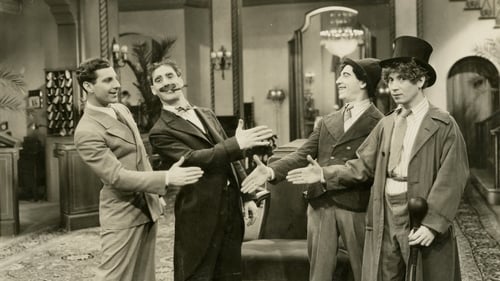
Hammer
During the Florida land boom, the Marx Brothers run a hotel, auction off some land and thwart a jewel robbery.

Villain
Harpo played the hero, a detective named Watson who "made his entrance in a high hat, sliding down a coal chute into the basement". Groucho played an "old movie" villain, who "sported a long moustache and was clad in black", while Chico was probably his "chuckling [Italian] henchman". Zeppo portrayed a playboy who was the owner of a nightclub in which most of the action took place, including "a cabaret, [which allowed] the inclusion of a dance number". The final shot showed Groucho "in ball and chain, trudging slowly off into the gloaming". Harpo, in a rare moment of romantic glory, gets the girl in the end.
